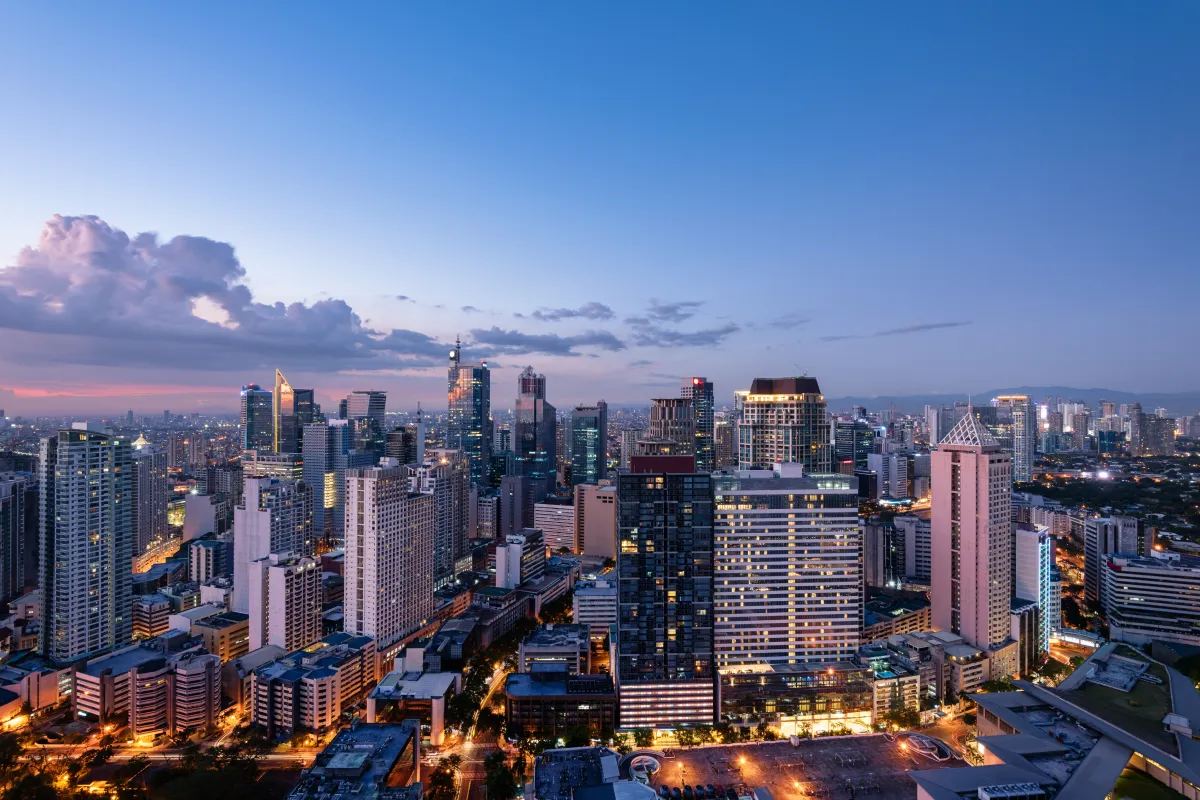
Countries
Employer of Record in the Philippines | Culture
We help you remain competitive for top talent and grow your global team quickly — no entity required

Philippines Fast Facts
Download our guide to hiring in Philippines.
Culture and Holidays in the Philippines
Languages
The Philippines is a multilingual workplace environment, with English, Filipino, and regional languages used across industries. While English dominates corporate settings, Filipino is widely spoken in government and business sectors, particularly in Luzon and Metro Manila. Workplaces often operate in a bilingual or multilingual manner, depending on the industry and region.
In customer service, language use depends on clientele. English and Filipino are common for domestic and international customer support, while many companies also hire speakers of Cebuano, Ilocano, Hiligaynon, and other regional languages to cater to regional customers.
Workplace norms and professional etiquette
Workplace culture in the Philippines blends strong traditional values with a growing adoption of modern business practices. Respect for hierarchy, loyalty, and interpersonal harmony are central themes, though global companies often introduce more collaborative norms. Business communication typically strikes a balance between formality and approachability.
Workplace hierarchy and authority
While leadership typically drives key decisions, employees are encouraged to follow structured channels of communication and show deference to senior roles. Teamwork is common, but managers are looked to for final approval and strategic direction.
Email and phone etiquette
Business emails and phone calls are expected to be courteous and well-structured. Emails usually begin with a polite greeting and end with a formal sign-off such as “Best regards” or “Respectfully yours.” On calls, brief small talk is considered polite before transitioning into business topics.
Meeting etiquette and punctuality
Punctuality is appreciated, though meetings may start a few minutes late. Small talk is typical at the beginning of meetings to build rapport. Handshakes are standard in formal introductions, and addressing colleagues with honorifics like “Sir” or “Ma’am” is still widely practiced.
Professional dress code
In corporate offices and professional services, business attire is expected — such as collared shirts, slacks, and conservative dresses. In BPOs, startups, or tech settings, business casual or smart casual is often acceptable.
National holidays
Employees in the Philippines are entitled to the following paid holidays:
- Jan. 1: New Year’s Day
- Eid al-Fitr
- Maundy Thursday
- Good Friday
- Eid al-Adha
- Apr. 9: Araw ng Kagitingan
- May 1: Labor Day
- Jun. 12: Independence Day
- Last Monday of August: National Heroes Day
- Nov. 30: Bonifacio Day
- Dec. 25: Christmas Day
- Dec. 30: Rizal Day
Every year the government announces several special holidays, which are unpaid days off and may change from year to year. These might include any of the following:
- Chinese New Year
- Black Saturday
- Aug. 21: Ninoy Aquino Day
- Oct. 31: All Saints’ Eve
- Nov. 1: All Saints’ Day
- Dec. 8: Feast of the Immaculate Conception of Mary
- Dec. 24: Christmas Eve
- Dec. 31: Last Day of the Year
The Philippines recognizes holidays that are categorized either as regular holidays or special (non-working) days.
Holidays that fall on a weekend are moved to the next regular workday. Employees required to work on a regular holiday are entitled to 200% of their daily wage for the first 8 hours.
Disclaimer: The information provided is for informational purposes only and does not constitute legal or professional advice. Safeguard Global disclaims any liability arising from reliance on this information. Certain content may be sourced from third parties and remains their intellectual property; all other content is owned by Safeguard Global and protected by applicable intellectual property laws. You are encouraged to seek professional or legal advice to address any issues, questions or matters arising from the information contained herein.

Contact Us
Book a demo today
We’d love to learn more about your needs and show you how we can help. Submit the form and we’ll be in touch to schedule a personalized demonstration of our platform and services.
Schedule an appointment
Fill out the form to speak to a rep about how we can help your organization.



















